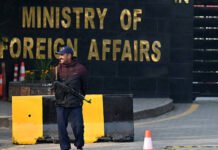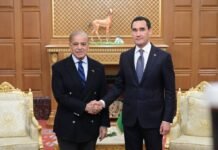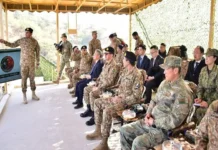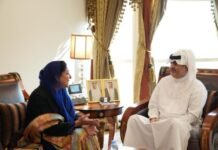Islamabad, 31 October 2023 (TDI): In a significant step toward a greener and more sustainable future, Pakistan is actively seeking Denmark’s support to boost its renewable energy capacity to 40% within the next two years, as outlined in the National Electricity Plan 2023.
This collaborative effort aims to accelerate Pakistan’s transition towards cleaner and more eco-friendly energy sources while aligning with global climate change targets and Sustainable Development Goals (SDGs).
A pivotal meeting was held between Interim Minister of Energy, Muhammad Ali, and the Danish Ambassador Jacob Linulf at the Power Division in Islamabad on Monday.
During this meeting, the delegates discussed the latest developments in the Danish Energy Transmission Initiative (DETI) and explored potential avenues of cooperation to advance Pakistan’s renewable energy goals.
The National Electricity Plan 2023, recently approved by the Pakistani government, serves as a comprehensive roadmap, providing essential guidelines, implementation mechanisms, and tools necessary to realize the nation’s policy objectives in the power sector.
Also Read: Pakistan aims to host SCO Conference on transportation connectivity
The plan envisions achieving a 40% share of renewable energy sources, including hydroelectric power, in Pakistan’s energy mix by 2025, and an ambitious 60% by 2030.
Minister Muhammad Ali emphasized the invaluable expertise and experience that Denmark can contribute to Pakistan’s transition towards a cleaner and greener energy mix.
Additionally, he highlighted the critical role of the power sector in climate change mitigation, emphasizing the government’s unwavering commitment to a just energy transition. Minister Ali stated, “The true success of this transition lies in the real impact we can make in sustainable energy.”
With climate change increasingly affecting Pakistan and making it more vulnerable to its impacts, the nation is taking proactive steps to adapt and mitigate these effects. During the meeting, Minister Ali discussed plans to expand sustainable energy generation, with a particular focus on harnessing wind and solar resources.
Minister Ali also stressed Pakistan’s commitment to gradually reducing tariffs and leveraging its indigenous energy resources. He underlined the importance of collaborating with Denmark, a country that has already successfully completed its energy transition and possesses valuable insights to share.
The meeting further explored the two thematic areas of DETI: energy planning and modeling, as well as the integration of renewable energy. These areas hold great potential for strengthening Pakistan’s renewable energy infrastructure and capabilities.
In addition to the discussions on renewable energy, the delegates also touched upon the upcoming Conference of Parties (COP28) agenda, reinforcing Pakistan’s commitment to international efforts in combating climate change.
Established in December 2008, The Diplomatic Insight is Pakistan’s premier diplomacy and foreign affairs magazine, available in both digital and print formats.








